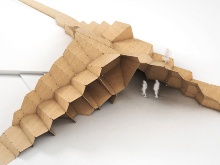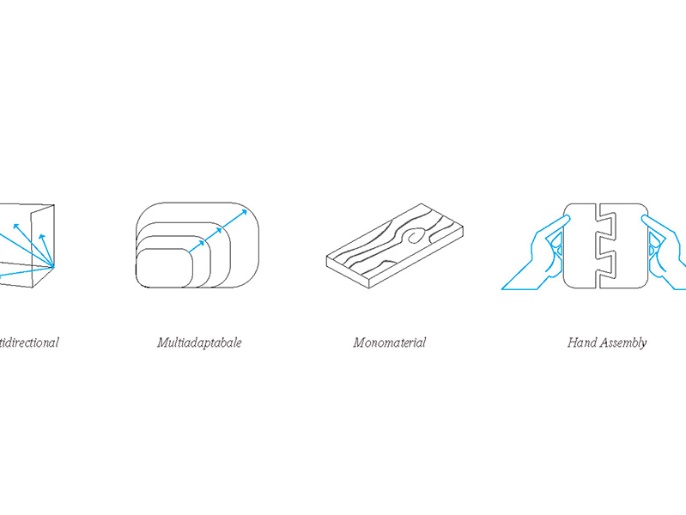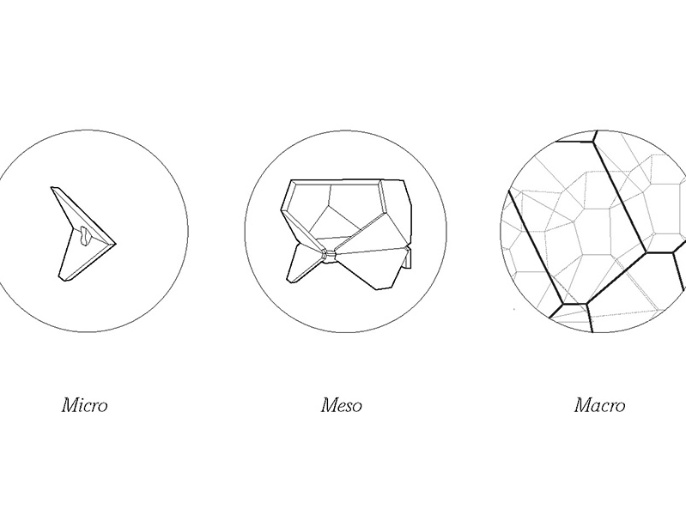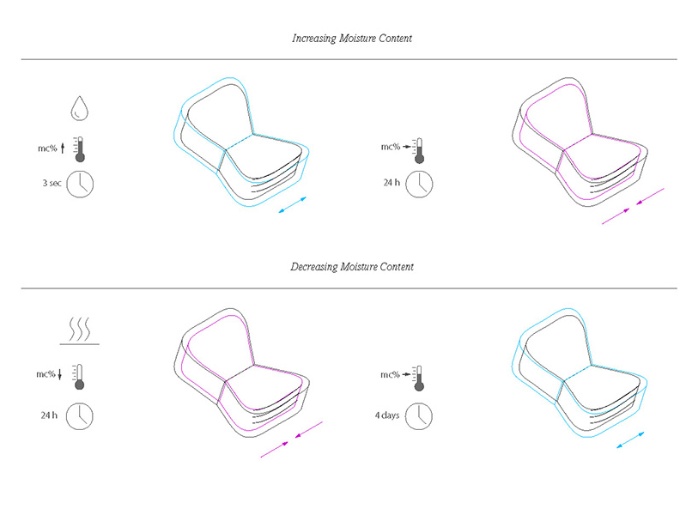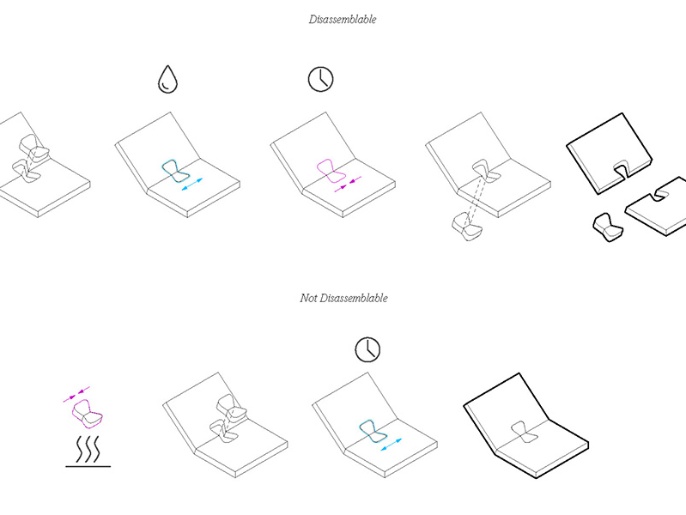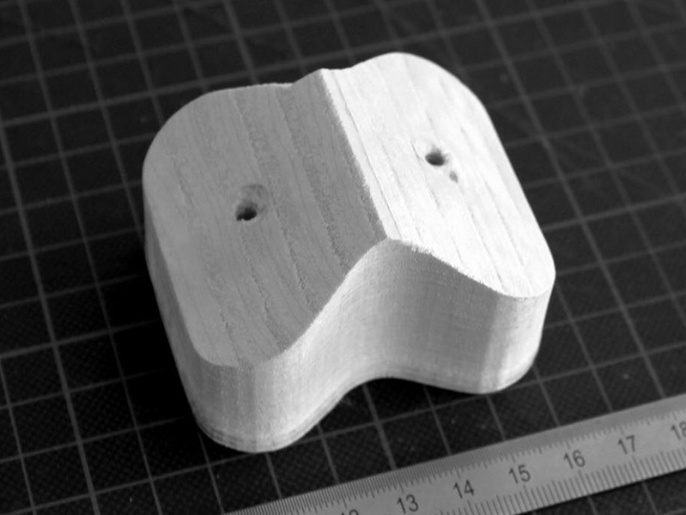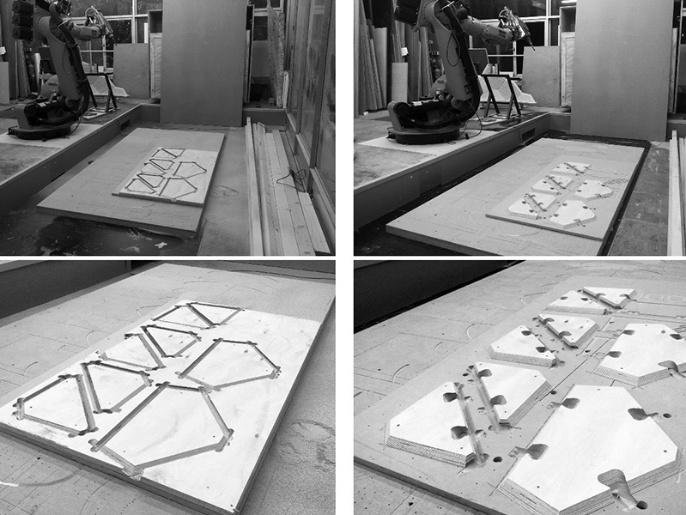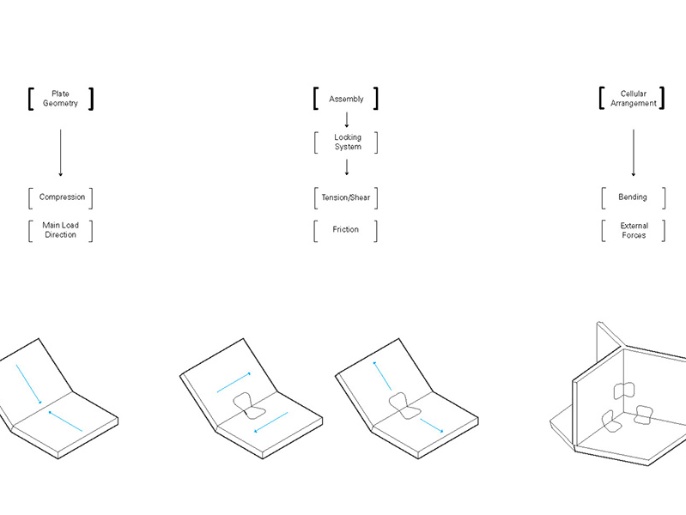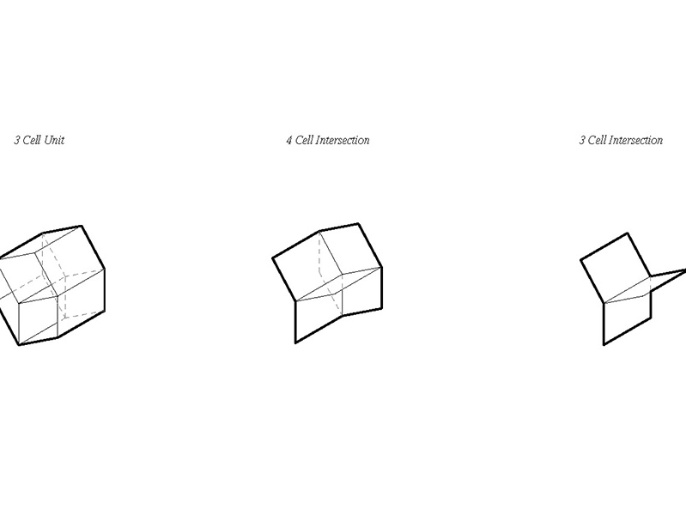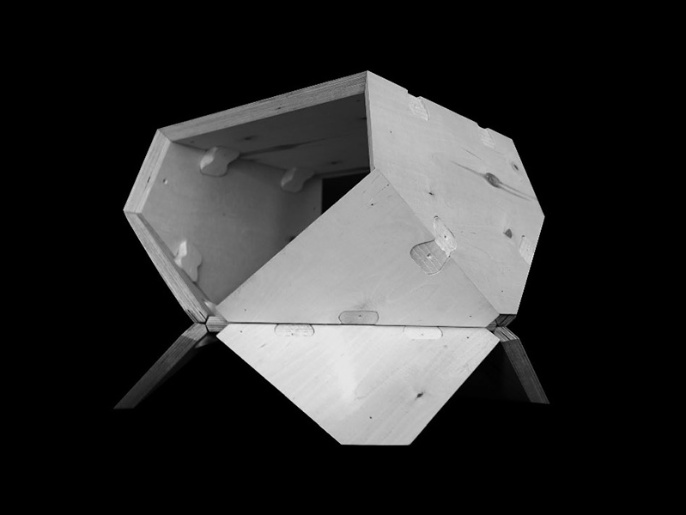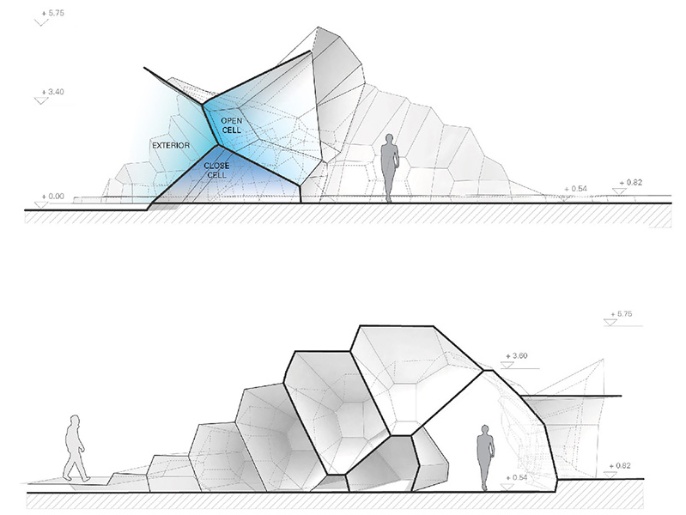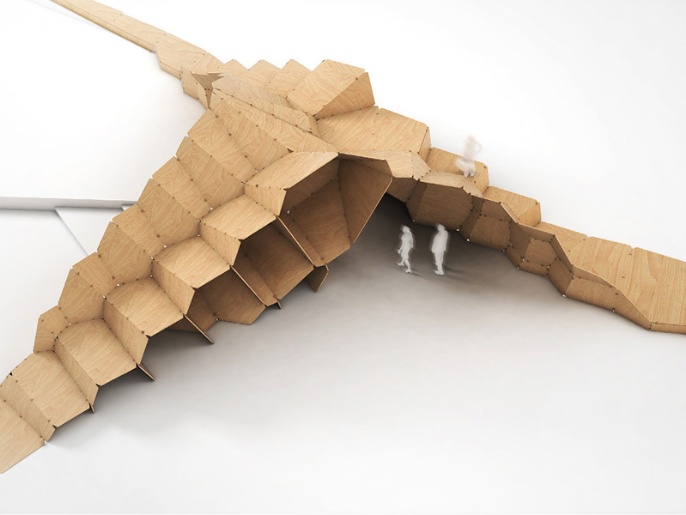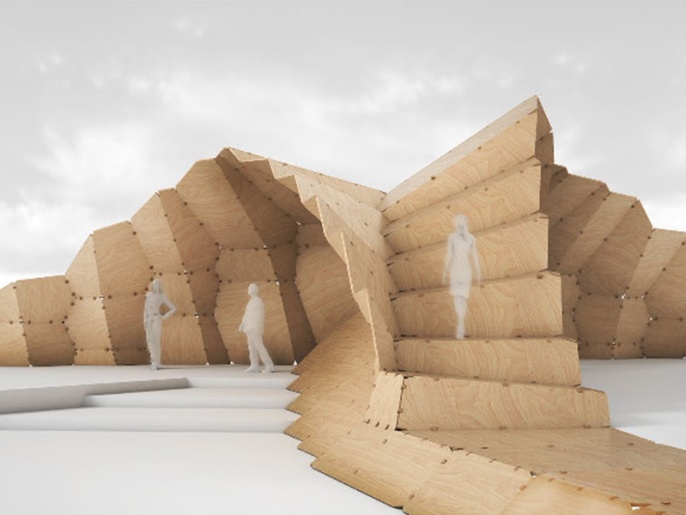Informed Connectivity -Employing Robotic Fabrication and Hygroscopic Shrink-Fitting for Three-Dimensional Cellular Plate Structures
The concept of informed connectivity as a means of designing three-dimensional cellular plate structure was developed by the Institute for Computational Design and the Institute of Building Structures and Structural Design, University of Architecture, Stuttgart, Germany. This project adopts the research from soap bubble experiments and the realm of material science, which is used to test its potential as an architectural building system. From the cellular research, architectural constructions can implement more differentiation in orientation, dimension, porosity and directionality.
Contemporary digital design, analysis, manufacturing tools and procedures are used to investigate the cellular assembly, locking geometry and hygroscopic behavior of wood. This thesis explores the design on three different levels micro, meso and macro, informing the development with multi scalar properties. A bottom-up approach is employed so that the joint design develops according to several parameters including: joint typology, material, tool typology, fabrication strategy, topological connectivity, assembly logic and structural performance. The criteria performance looks at the connecting assembly system, whose logic is determined according to the joint’s degree’s of freedom.
ITECH M.Sc. Thesis Project 2015: Informed Connectivity - Employing Robotic Fabrication and Hygroscopic Shrink-Fitting for Three-Dimensional Cellular Plate Structures
Djordje Stanojevic
Thesis Advisers: David Correa, Oliver Krieg
Thesis Supervisor: Prof. Achim Menges
Second Supervisor: Prof. Jan Knippers
The concept of informed connectivity as a means of designing three-dimensional cellular plate structure was developed by the Institute for Computational Design and the Institute of Building Structures and Structural Design, University of Architecture, Stuttgart, Germany. This project adopts the research from soap bubble experiments and the realm of material science, which is used to test its potential as an architectural building system. From the cellular research, architectural constructions can implement more differentiation in orientation, dimension, porosity and directionality.
Contemporary digital design, analysis, manufacturing tools and procedures are used to investigate the cellular assembly, locking geometry and hygroscopic behavior of wood. This thesis explores the design on three different levels micro, meso and macro, informing the development with multi scalar properties. A bottom-up approach is employed so that the joint design develops according to several parameters including: joint typology, material, tool typology, fabrication strategy, topological connectivity, assembly logic and structural performance. The criteria performance looks at the connecting assembly system, whose logic is determined according to the joint’s degree’s of freedom.
ITECH M.Sc. Thesis Project 2015: Informed Connectivity - Employing Robotic Fabrication and Hygroscopic Shrink-Fitting for Three-Dimensional Cellular Plate Structures
Djordje Stanojevic
Thesis Advisers: David Correa, Oliver Krieg
Thesis Supervisor: Prof. Achim Menges
Second Supervisor: Prof. Jan Knippers


